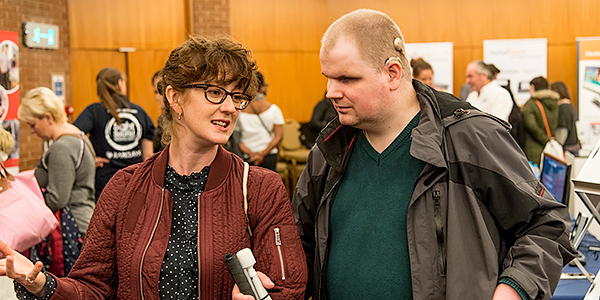Three reasons why life costs more when you’re disabled
Steven works on campaigns at Sense. Here he explains why, even before the current cost of living crisis, disabled people were paying more for essentials.

We’re all feeling the pinch as the cost of living rises – whether that’s the price of the weekly shop, or our energy bills. Hardly anyone is immune from the impacts of the cost of living crisis. But for disabled people, who already face higher costs, the situation is desperate.
While the recent one-off payment from the government to help with the rising cost of energy is welcome, it’s only a temporary solution to a long-term problem disabled people face. Our recent research found that 78% of disabled people are worried that the rising costs of essentials will push them in to debt.
You might be wondering why disabled people are so worried about the cost of living crisis. Put simply, it already costs more to be disabled. For starters, disabled people are less likely to be in employment than non-disabled people, meaning many are more likely to receive benefits. Plus, before the current crisis, it was estimated that disabled people face additional costs of £583 a month.
But what are these extra costs? Here are three of the key reasons why disabled people have to spend more in our daily lives.
1. Specialist equipment often means higher energy bills
One of the ways many disabled people face higher costs every day is through the need to use more electricity and energy to power essential equipment and appliances. I know of many disabled people who need to use a lot of electricity, whether that’s to charge mobility equipment or other pieces of assistive technology.
Often there’s a need for extra washing to be done, meaning higher running costs for the washing machine too. Many disabled people also need specialist breathing and monitoring equipment that has to be on all day and night, sending electrical bills spiralling.
I’m deaf and wear cochlear implants, and I’m constantly having to charge these. My phone also has a lot of specialist software on it that enables me to access the world and stay connected, so I have to charge my phone more frequently than others.
I’m very aware that the price I pay for my energy bill doesn’t even come close to the expense that others face from charging equipment like an electric wheelchair daily or running medical monitoring equipment. This is equipment that many individuals and families can’t live without. It’s not a choice we have to make.
“Three quarters (77%) of disabled people we surveyed say they don’t know how they’ll cope if prices continue to rise.”
Despite this, disabled people are telling us that rising energy prices are pushing them to make impossible decisions. Three quarters (77%) of disabled people we surveyed say they don’t know how they’ll cope if prices continue to rise.
Nearly a third (27%) have cut down on vital therapy and equipment.
Jade, who’s been campaigning with us, told us she can no longer afford to charge her electric wheelchair every day. This means she’s unable to go out as much, impacting her independence.
2. Many disabled people rely on taxis or cars to get around
Even before the cost of living crisis, inaccessible public transport meant that many disabled people relied on driving to get around – or like me, have to use taxis. The cost of this soon mounts up.
In June this year, the price of petrol saw its biggest daily jump in 17 years, with the news that it now cost an average of £99.40 to fill up a petrol car. This will simply price many disabled people out of being able to travel. Many will choose to save their petrol or taxi costs for emergencies such as medical appointments.
Indeed, over half (59%) of disabled people told us they’ve cut down on social activities because of the cost of living. With loneliness already high among disabled people, this risks increasing the isolation many disabled people already face.
3. Disabled people may face limited options when it comes to food shopping
Like many disabled people, I rely on foods that are easy for me to cook with my disability – but these are generally more expensive.
One convenience food I buy has gone up in price by 50% since January. Factor that in across the whole weekly shop, and you’re looking at a large increase in the grocery bill.
Although the rising cost of food affects everyone, it’s important to remember that many disabled people are limited in the foods we can buy either due to the cost or because of how easy it is to prepare.
We’re already seeing the devastating impact rising food prices are having. Nearly half (44%) of disabled people have skipped a meal to save money.
Demand more support for disabled people
During the cost of living crisis, we’re calling on the Government for:
- A benefits system that meets disabled people’s needs
- More financial support for higher energy costs
- Targeted support for disabled people and their families
Will you join us?

